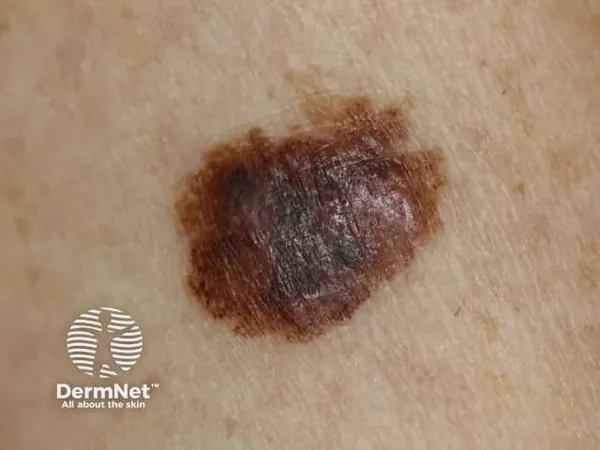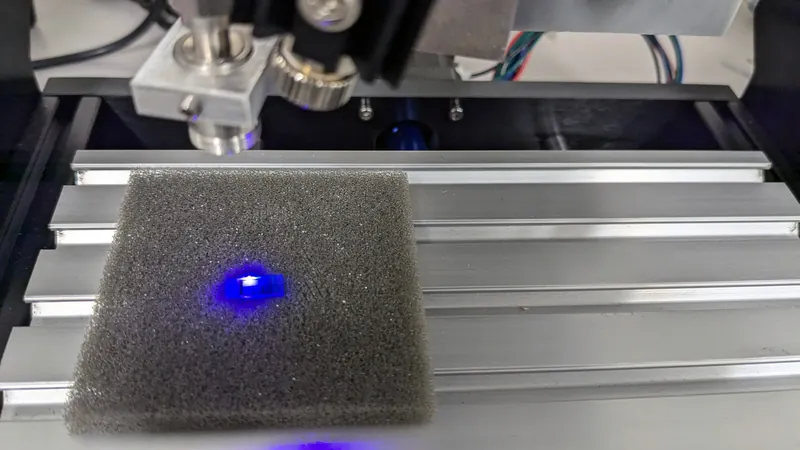
Breakthrough Study Reveals Insights into Pancreatic Risks of Melanoma Treatment with New Algorithm for Lipase Monitoring
2024-11-25
Author: Ming
Introduction
A groundbreaking international study has unveiled significant findings regarding immune checkpoint inhibitor-induced pancreatic injury (ICIPI), shedding light on a largely under-recognized adverse effect associated with melanoma treatments. This multicenter investigation, published in the esteemed Journal of the European Academy of Dermatology and Venereology, involved 1,516 patients treated across various centers in Austria and Switzerland between 2017 and 2020.
Prevalence and Risks of ICIPI
While ICIPI occurs in a small percentage of patients (between 0.5% and 3%), it poses serious risks such as pancreatic insufficiency when left undiagnosed in asymptomatic individuals. Immune checkpoint inhibitors, like the anti-PD-1, anti-PD-L1, and anti-CTLA-4 antibodies, are now key components of melanoma treatment due to their efficacy in achieving long-term remission. However, these therapies are also accompanied by immune-related adverse events, notably ICIPI, which can manifest as acute or chronic pancreatitis.
Study Findings
The study meticulously analyzed the clinical outcomes of patients demonstrating lipase elevations indicative of pancreatic issues after starting immune checkpoint inhibitor therapy. Out of the total cohort, it was determined that 350 patients (23.1%) had varying degrees of serum lipase elevation, with 204 patients (13.5%) identified for further detailed analysis. Particularly striking was the finding that patients who received the combination therapy of ipilimumab and nivolumab exhibited the highest rates of elevated lipase levels — a staggering 49.5%.
Symptoms and Management
Symptoms of pancreatitis were documented in 20.1% of those with elevated lipase; however, a surprising 79.9% remained asymptomatic despite their elevated lipase levels. On a cautionary note, severe elevations were reported in 44.1% of patients, with symptomatic cases more inclined to present severe lipase grades. Alarmingly, nearly half (45.1%) of the patients experienced interruptions or discontinuation of their treatment due to significant lipase elevations. Interestingly, corticosteroids were administered to 50.5% of this group, though normalization of lipase levels was not notably quicker compared to those who did not receive steroids.
Conclusion and Recommendations
Crucially, the study noted that no patients suffered long-term pancreatic insufficiency or any fatal events due to ICIPI, suggesting the condition can often be effectively managed with appropriate interventions. Management strategies for ICIPI varied greatly among the centers involved, particularly with regards to asymptomatic elevations, where some continued therapy while others recommended temporary interruptions. In response to these findings, the authors have recommended a novel management algorithm aimed at standardizing practices across treatment centers. This algorithm highlights the importance of targeted lipase monitoring, advocates for limited imaging in the absence of strong clinical suspicion, and endorses cautious use of systemic steroids for symptomatic patients or those with imaging-confirmed pancreatitis.
Future Directions
Overall, this study not only underscores the importance of regular pancreatic enzyme checks for patients undergoing combination ICI therapy but also points to the pressing need for additional research. The authors call for further studies to fully understand the underlying pathogenic mechanisms that may lead to asymptomatic elevations of pancreatic and other serum enzymes during treatment, thus improving routine clinical assessment and care. As the field progresses, staying informed of these developments could be vital for patients and healthcare providers alike in navigating the complexities of melanoma therapy safely and effectively.



 Brasil (PT)
Brasil (PT)
 Canada (EN)
Canada (EN)
 Chile (ES)
Chile (ES)
 España (ES)
España (ES)
 France (FR)
France (FR)
 Hong Kong (EN)
Hong Kong (EN)
 Italia (IT)
Italia (IT)
 日本 (JA)
日本 (JA)
 Magyarország (HU)
Magyarország (HU)
 Norge (NO)
Norge (NO)
 Polska (PL)
Polska (PL)
 Schweiz (DE)
Schweiz (DE)
 Singapore (EN)
Singapore (EN)
 Sverige (SV)
Sverige (SV)
 Suomi (FI)
Suomi (FI)
 Türkiye (TR)
Türkiye (TR)